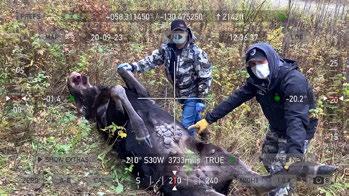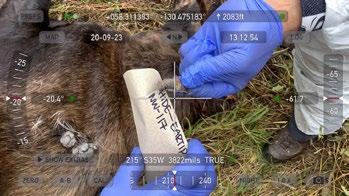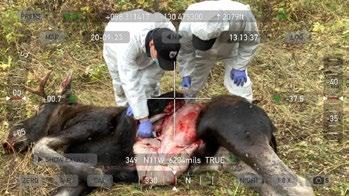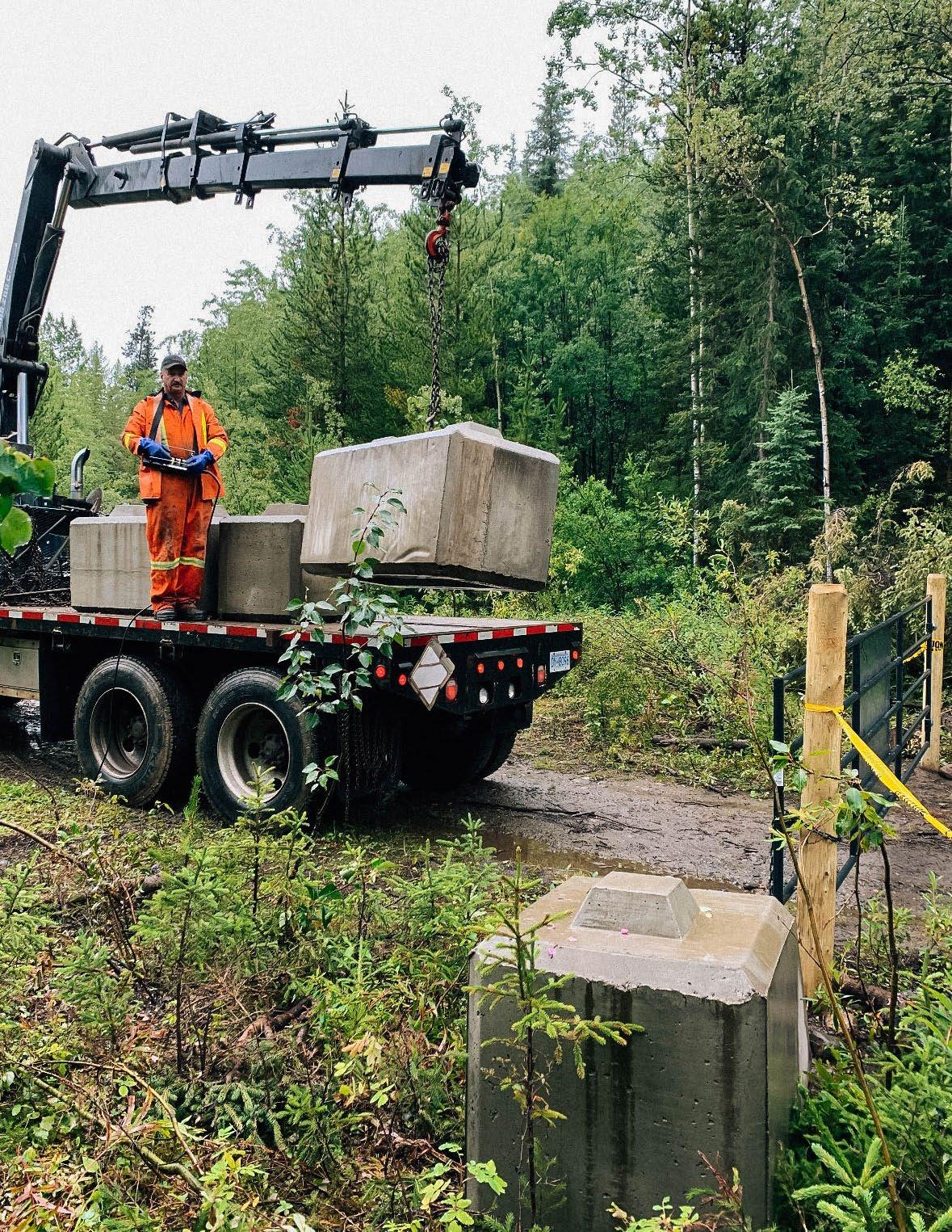
4 minute read
Guardians Message
WILDLIFE
Jarett Quock
Guardian
December will mark one year since I returned to work. A lot has changed since then. The way Lance Nagwan has taken the Guardian Program to the next level makes me very proud to be a part of this growing program, which helps protect some of our Nation’s resources that our people depend on.
Over the year being back at work, as my heath was improving, I have been figuring out where I can fit in. This year brought a lot of challenges my way, with work and my health, but I am very proud to be able to participate and to still contribute to the program.
This hunting season we had to take a different approach with all the concerns around COVID-19 restrictions. Social distancing with the outside residents could have been challenging this year if things did not change for us. Towards the beginning of the season, our direction had changed. Detouring non-local residents and asking hunters not to come hunting in Tahltan Territory was our way of not having contact with non-locals and keeping our Guardians, as well as our communities, safe.
With all the confusion around COVID-19, closures were interpreted differently by many people. Local safety was the number one concern, but an added benefit was addressing the unnecessary stresses wildlife do not need to go through. There was a record amount of tags sold this year, resulting from an online tag purchase system. With the record amount of tags sold and the COVID-19 pandemic, our Guardians program had to have something in place to keep our communities safe and keep the pressures down during the hunting season.
I am looking forward to the winter part of the season and really starting the Predator program. It’s one of the more exciting times of the year. As we wrap up the 2020 hunting season with the COVID-19 pandemic still an unprecedented threat to our communities, the Wildlife Department has been focused on managing our hunting season and animals with a focus on staying safe. Due to COVID-19, my school shut down and went to online sessions with no face-to-face learning, which is challenging. I am continuing my studies online as I work for TCG, with hopes to return to classes in the new year, but things are not looking up as the virus continues to spread. Over the summer, we Guardians did our best to stay safe and manage this year’s hectic hunting season within the Territory. Brianna Tashoots
Guardian
The hunting season brought many challenges as we tried to shut down the Territory to all non-Tahltan hunting and recreational activity, with the intention of keeping our three communities safe from the virus.
Despite the pandemic, the Wildlife Department continues to develop the Tahltan Predator Management Policy as we move forward to help the recovery of our ungulate population. Wishing everyone a safe winter season.
Clements Brace
Guardian
MOOSE SAMPLING ON TELEGRAPH RD.
Tahltan harvester informed us of a sick looking moose along Telegraph Rd. The results of the health samples showed warts or “papillomas” caused by a moose specific virus transmitted by biting insects. It only affects the skin and the meat is very edible, not contagious to people at all!


Top: Warts or “papillomas” on the underside of the moose.
Middle: Moose eartip sample collection. Bottom: Guardians documenting and sampling organs and meat of the moose.

Below: We ran our COVID-19 Territory Restrictions as ads in the Smithers Interior News and Terrace Standard newspapers.
HUNTERS & WILDLIFE ENTHUSIASTS TRAVEL ADVISORY:
DO NOT TRAVEL TO TAHLTAN TERRITORY DURING COVID-19
“The Tahltan Nation is asserting our title and rights in order to protect our communities, and respectfully asking all hunters and wildlife enthusiasts to refrain from travelling to
Tahltan Territory during COVID-19. In order to protect our communities, the Tahltan
Nation encourage everyone in British Columbia to engage in all recreational activities
where they reside.” Chad Norman Day, President, Tahltan Central Government
“Before travelling, check on whether there are travel advisories in place for transportation routes and recreational sites, and be sure the community you want to visit is open to
visitors.” Dr. Bonny Henry, Travel Manners
Remote and Vulnerable
Tahltan Territory’s remote location makes this region of British Columbia amongst the most vulnerable in Canada. With limited healthcare facilities, a lack of timely transport of patients needing critical care, and large numbers of Elders, COVID-19 is a grave threat that the Tahltan Nation takes extremely seriously.
Limited Medical Capacity
The closest hospital from Tahltan Territory is approximately 600kms away. We have a limited amount of aircraft, airport infrastructure, and pilots available for any emergency medical evacuations. Our clinics have very limited staff, that we desperately need for our local communities and Tahltan people. In fact, there is no longer a functional pharmacy in Tahltan Territory during this time.
Shutting Down Access Points
All non essential travel to Dease Lake, Iskut and Telegraph Creek should be avoided and all recreational activity is strongly discouraged north of Bob Quinn. Hunting and recreational activity access points, including the Stikine Bridge, will be blocked with gates and monitored.
Patrolling Our Territory
The Tahltan Central Government’s Wildlife Department and our Guardians will be patrolling Tahltan Territory and asking all visitors to follow appropriate procedures or leave if they choose to ignore this travel advisory.
For more information and updates visit tahltan.org/covid-19










